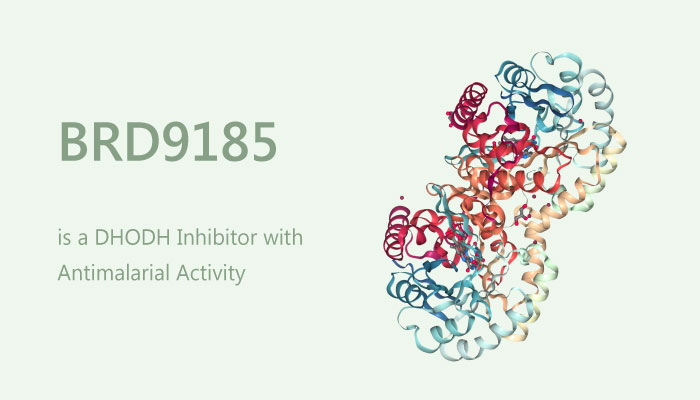In our previous blogs, we have introduced two compounds that have antimalarial activity, BDA-410 and UCT943. BDA-410 is a calpain inhibitor and UCT943 is an inhibitor of Plasmodium PI4K.
Today, I would like to share another antimalarial compound, BRD9185.

A study from Micah Maetani discovered BRD9185 as an antimalarial azetidine-2-carbonitrile that inhibit P. falciparum dihydroorotate dehydrogenase (DHODH). DHODH is an enzyme necessary for pyrimidine biosynthesis in protozoan parasites of the genus Plasmodium, the causative agents of malaria.
In the study, the authors reported a potent series of antimalarial inhibitors and found an optimized compound (BRD9185) with both in vitro and in vivo activity.
In vitro, the EC50 of this compound shows is 16 nM against multidrug-resistant blood-stage parasites.
And in vivo, BRD9185 is highly protein-bound in both mouse and human plasma (>99%) and is a highly bioavailable (94%), long half-life (15 h) compound in mice (PO 5 mg/kg; IV 1 mg/kg) with low clearance (0.40 mL/min/kg).
Furthermore, BRD9185 is curative after just three doses in a P. berghei mouse model. The authors also used a blood-stage model with the rodent malaria parasite P. berghei that expressed luciferase and treated infected CD-1 mice for 3 days with 66.6 mg/kg of BRD9185 or vehicle. As a result, no parasites were detected after 30 days in mice treated with BRD9185. These results suggested the activity of BRD9185 for P. berghei infected mice.
All in all, BRD9185 is a DHODH inhibitor with antimalarial activity, more pre-clinical studies still need to be carried out.